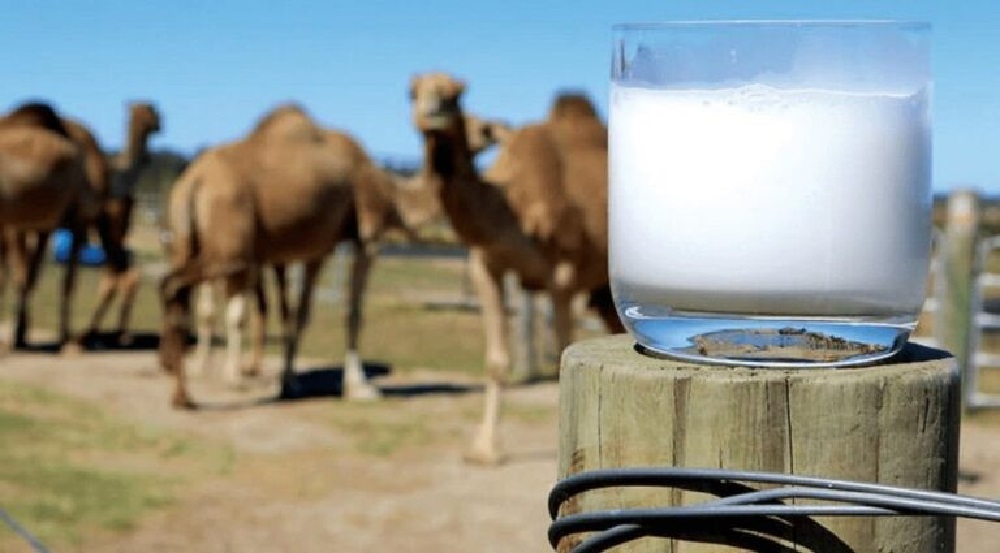Watan-A study conducted by Edith Cowan University in Australia found that camel milk has remarkable nutritional benefits and higher levels of health-promoting natural components compared to cow’s milk.
The researchers explained that these components possess antimicrobial and blood pressure-lowering properties, making them beneficial for digestive health and potentially reducing the risk of heart disease in the future. The findings were published on Wednesday in the journal Food Chemistry.
Camel milk accounts for only 0.4% of global milk production, with cows leading at 81%. However, camel milk is gaining global recognition for its sustainable production in arid and semi-arid regions, which are suitable for camels. This contributes to food security in those areas.
In Australia, there are camel milk farms, but their production remains limited compared to cow farms. Camels produce about 5 liters of milk daily, compared to 28 liters produced by cows.
According to the study, camel milk is a healthy alternative to cow’s milk, particularly for people with dairy allergies or lactose intolerance.

The researchers added that camel milk does not contain beta-lactoglobulin, a major allergen for some individuals. It also has a lower lactose content, making it a suitable option for those with lactose intolerance.
They also found that camel milk contains higher levels of bioactive peptides compared to cow’s milk. These are small protein molecules produced during the digestion or processing of dietary proteins.
These peptides have antimicrobial properties, supporting immune health by maintaining the balance of beneficial gut bacteria. Additionally, they help dilate blood vessels, reducing the risk of heart disease.
The study noted that cow’s milk consists of 85-87% water, with fat content ranging from 3.8% to 5.5%, protein content from 2.9% to 3.5%, and lactose at 4.6% per 100 milliliters. In comparison, camel milk contains 87-90% water, with protein content ranging from 2.15% to 4.90%, fat content from 1.2% to 4.5%, and lactose between 3.5% and 4.5%.
The researchers stated that the study opens the door to further research on the effects of bioactive peptides in camel milk, which could lead to the development of food and pharmaceutical products based on these compounds.
They added that the study highlights the health and economic potential of camel milk, as increased production and consumption could enhance local economies in regions with suitable conditions for camel farming.
